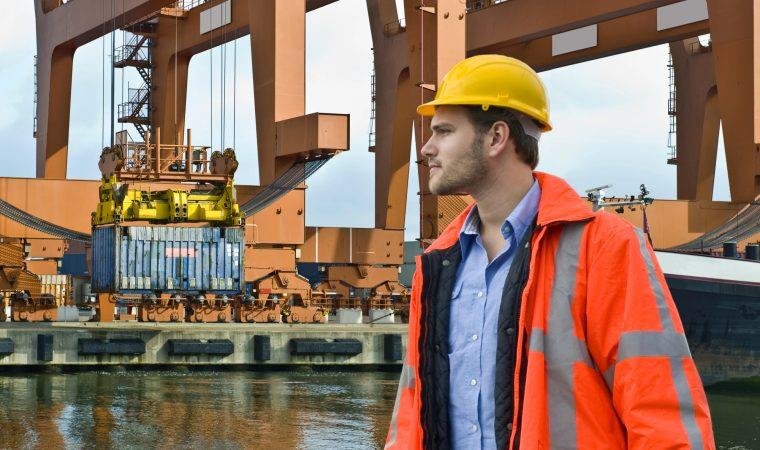For workers in the maritime world, the Longshore and Harbor Workers’ Compensation Act (LHWCA) acts as a lifeline when accidents happen. This important law steps in to provide benefits like medical care, wage replacement, and vocational training for those who suffer injuries while working on or near navigable waters. Although it is a federal law, the benefits themselves are usually handled by private insurance companies rather than the government. When an injury occurs, the employer’s insurance company will step in to evaluate and, if appropriate, provide coverage. California Business Lawyer & Corporate Lawyer Inc. provides valuable resources, including a Longshoreman insurance providers FAQs for maritime employers, helping businesses understand their obligations under the LHWCA.
Who Qualifies for Coverage Under the LHWCA?
Many workers who spend their days near water may qualify for coverage under the LHWCA. Jobs like longshoremen, harbor workers, shipbuilders, ship repairers, and ship breakers all fall within the Act’s reach. The injury must happen either on navigable waters or nearby areas like docks, piers, terminals, or wharves. There are cases where even non-maritime workers can be protected if their injury happens in these designated areas. With extensive experience, Nakase Law Firm Inc., an employment defense attorney serving Los Angeles, San Diego, and California, offers guidance to both employers and employees navigating coverage under the LHWCA.
The LHWCA’s protection has grown over time. For instance, the Defense Base Act extended its coverage to people working on U.S. military bases overseas or performing work connected to national security. The Outer Continental Shelf Lands Act brought employees working on offshore oil rigs under its protection, and the Non-Appropriated Fund Instrumentalities Act added certain civilian employees tied to the armed forces. Thanks to these extensions, more workers are now eligible for vital benefits.
Who Is Left Out of LHWCA Coverage?
Despite its wide net, the LHWCA does not cover everyone. Seamen, who are protected by The Jones Act, are not included. Likewise, U.S. government employees, workers employed by foreign governments, and those whose injuries were caused by intoxication or deliberate misconduct are excluded. If a worker’s injury falls under a state workers’ compensation plan instead, the LHWCA would not apply.
What Injuries and Illnesses Are Included?
The LHWCA doesn’t limit itself to specific types of injuries. A wide range of conditions can be covered, from falls, slips, and crush injuries to repetitive motion problems, burns, amputations, and eye or ear damage. Illnesses caused by hazardous material exposure, including respiratory problems and certain cancers, are also within its scope. If an illness or injury can be traced back to work duties performed near navigable waters, chances are it can be covered.
What Maritime Employers Are Required to Do
Employers in the maritime field have important responsibilities once a worker reports an injury. Within ten days, they must report the incident to the U.S. Department of Labor’s Office of Workers’ Compensation Programs (OWCP). Additionally, they must provide injured employees with the correct forms and information they need to move forward with their claim. Importantly, workers have the right to pick their own doctor for treatment, rather than being assigned one by the employer.
How to Start the Claims Process
When an injury happens, acting quickly is key. Workers must notify their employer within thirty days — preferably sooner — to avoid complicating their case. While the law gives a bit of time, immediate action is always safer.
After notifying the employer, getting medical treatment comes next. Workers can choose their physician, and if it’s an emergency, treatment can be sought immediately with authorization requested afterward. Form LS-1 is typically used to authorize treatment, but emergencies do not need to wait on paperwork.
In addition to telling the employer, injured workers must also file a claim with the OWCP within one year of the injury or the last voluntary payment of benefits. Missing this deadline can cost workers their right to claim benefits, even for long-term or serious injuries.
What Benefits Can Be Received?
The LHWCA promises several types of support for injured workers. Medical expenses related to the injury are covered, as are payments to replace lost wages during recovery. If the injury leaves a worker unable to return to the same role, vocational rehabilitation is available to prepare them for new opportunities within their capabilities.
When injuries result in death, the law provides benefits to surviving spouses and dependents. Funeral and burial costs are also covered. In cases of permanent disability, medical treatment for ongoing needs remains available.
Can You Sue Someone Else for Your Injury?
Even though workers cannot sue their employers directly under the LHWCA, that does not mean lawsuits are off the table entirely. If a third party was responsible for the injury, the worker can file a lawsuit against them. This could include suing the owner of a vessel, even if the vessel’s owner is also the employer — as long as the lawsuit targets them in their role as vessel owner, not as employer.
Suing a third party opens the door to broader compensation than the LHWCA alone provides. It can help recover full medical expenses, future lost earnings, and damages for losses like pain and suffering. Punitive damages may also be awarded to punish extreme negligence and discourage it from happening again.
How Much Compensation Might Be Received?
The amount of compensation depends on several factors, such as the worker’s average weekly wage and how severe the injury is. Benefits can range from short-term payments during recovery to long-term disability benefits. Medical treatment costs are generally covered in full, and when retraining is needed, the costs associated with it can be paid as well.
When a third-party lawsuit is successful, workers may recover much more. Damages can include long-term medical costs, lost income potential, loss of companionship for families, and compensation for pain and suffering. Every case is different, but third-party claims often provide financial support that goes beyond workers’ compensation benefits.
What to Do if a Claim Is Denied
Sometimes, despite a worker’s best efforts, a claim may be denied. If this happens, there are steps that can be taken. Workers can request an informal conference with the claims examiner to go over the denial. Additional evidence or information can be presented to strengthen the case.
If the matter remains unresolved, a formal hearing can be requested with an administrative law judge, who will listen to both sides and issue a decision. If the worker disagrees with the judge’s decision, they can appeal to the Benefits Review Board. In some cases, appeals can be taken even further, all the way to the U.S. Court of Appeals. Each stage provides a chance to correct mistakes and push for a different outcome.
Is It Necessary to Hire a Lawyer?
Although it’s not required to have a lawyer when filing a claim, having professional help can make the process smoother. An experienced maritime lawyer can handle evidence gathering, negotiations, and the appeals process if necessary.
Having an advocate by your side makes a huge difference. Lawyers can also evaluate whether a third-party lawsuit is a good idea and help maximize the total compensation available. With legal help, injured workers can focus on healing rather than fighting insurance companies or worrying about paperwork.
Final Thoughts
The Longshore and Harbor Workers’ Compensation Act is an important safety net for maritime workers injured on the job. Knowing who qualifies, what benefits are available, and how the claims process works can help workers make informed choices after an accident. Quick action, proper paperwork, and, when needed, skilled legal help are key to making sure workers receive the care and support they need after a workplace injury.

